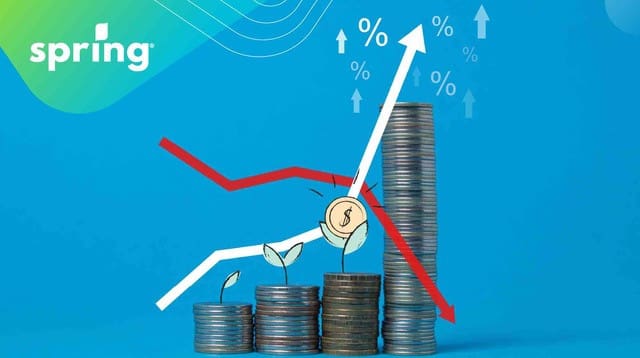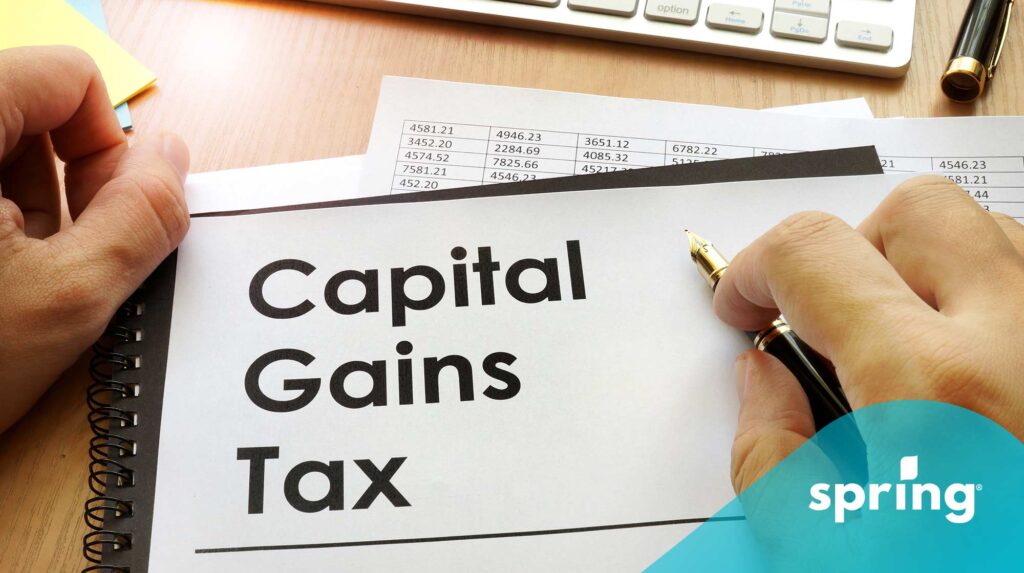Different types of cards that each supplier issues will have different maximums as well. That doesn’t mean you will get approved for the maximum amount though. The limit that you are approved for will depend on a few different factors including income, debt to income ratio, and credit score. These factors will also impact the type of credit card you will be approved for.
The Highest Limits
Credit card limits in Canada vary so much that it is difficult to determine what the highest limit is. The limits are based on different factors based on your personal situation, so the highest limit isn’t really known. That being said, there are some credit cards that have limits upwards of $100,000. Some others have been known to go up to $500,000. It’s not common for credit card limits to be higher than $500,000, though.
Is There A Maximum Credit Card Limit?
While some cards in Canada do hae maximum credit card limits, there’s actually no hard and fast rule for credit card limits in Canada. It really just depends on how much income you earn in a year, what your current credit card debt is, and what your credit score is. From there, the credit card issuer will determine what your credit card limit is. Some cards, like American Express, just have higher credit card limits than other issuers.
Average Credit Card Limits
While credit card limits can be upwards of $500,000, that really isn’t the norm for most Canadians. Surprisingly enough, though, 41% of Canadians have a credit card with a limit of $10,000 or more. Only around 15% of Canadians have a card with a low credit limit of $2000 or less. The average limit overall is $13,000.
Why It’s More Common to Have a Higher Limit
While it may seem obvious that having lower credit card limits on your credit cards is better, it really isn’t about the limit. Credit cards are all about how you use them. If you use them properly, they can have a positive impact on your credit score.
Credit utilization is important when it comes to credit cards. It is recommended that you keep your credit card balance at less than 35% of your card’s credit limit in order for the credit card to have a positive impact on your credit score.
So, for a $10,000 limit, the maximum recommended usage is $3,500. This is one of the reasons why a $10,000 limit is more common than a $2,000 limit. With a $2,000 limit, you are more likely to go over the 35% usage.
Maximum Limits on Different Cards in Canada
When you are looking for a high limit credit card, not all of them are advertised. You may have to speak with a representative if you are looking for a card over $50,000. That being said, we did find some big name cards that have their maximum credit limits listed.
| Credit Card | Interest Rate | Annual Fee | Maximum Credit Limit |
| RBC Visa Platinum | 19.99% | $0 | $50,000 |
| BMO Cashback Mastercard | 20.99% | $0 | $100,000 |
| American Express Cobalt Card | 20.99% | $155.88 | $100,000 |
| Tangerine World Mastercard | 19.95% | $0 | $100,000 |
| Scotiabank Passport Visa Infinite Card | 20.99% | $150 | Can be up to $75,000 |
RBC Visa Platinum
This is just one of the cards that RBC offers, and it has no annual fee. This card also lets you unlock deals from over 2,000 top brands. What you should also consider is that it’s one of RBC’s base cards. This means that there are other cards that also offer a high limit, possibly even higher, with even more add ons and rewards.
When it comes to insurance, this card offers travel accident insurance as well as auto rental collision and loss damage waiver insurance. Like most credit card, this card also offers purchase security and extended warranty insurance.
BMO Cashback Mastercard
With BMO you have a choice between the BMO Cashback Mastercard and the BMO Cashback World Elite Mastercard. While both are great cards, the Cashback Mastercard has no annual fee. As a welcome offer, they offer 5% cashback for your first 3 months and a 0.99% introductory interest rate on balance transfers for the first 9 months. There’s also a 2% fee for all amounts transferred.
When it comes to cashback, you can get 3% back on groceries, 1% cashback on bill payments and 0.5% back on all other purchases. There’s no annual fee rebate only because you don’t pay an annual fee. The benefits included with this card are:
- Extended warranty and purchase protection
- 5% discount at enterprise rent a car
- 20% discount at National Car Rental and Alamo Rent A Car
- 20% off Cirque du Soleil in Canada and 15% in Vegas
- Up to 7% off at Booking.com
That said, for those who have an annual income of $80,000 or a household income of $150,000 can get the World Elite Mastercard. The welcome offer for this card is 10% cashback for the first 3 months and an additional $75 back when you spend $25,000 in the first year. You can also get a rebate on your annual fee of $120 to save money.
You can also earn more cashback with 5% back on groceries, 4% on transit, 3% on gas and 2% on recurring bills. All the features you get with the Cashback Mastercard are included as well as some additional ones. These are:
- Complimentary membership in Mastercard Travel Pass provided by Dragonpass
- Travel and medical insurance
- Roadside assistance
You can use your cashback for either card as a statement credit, or use it with your BMO account or even Investorline. As you can see, though, both of these cards have minimal insurance coverage compared to some others.
American Express Cobalt Card
Another great high limit credit card is the American Express Colbalt Card. This card allows you to earn up to 15,000 membership rewards points in the first year. In order to do so you have to spend at least $750 per month on your card for a year. There’s a monthly fee for this card of $12.99 which works out to $155.88. How much credit limit your approved for though, is up to the issuer.
When it comes to earning points, you can earn 5x on food and drinks, 3x on streaming subscriptions and 2x on gas, transit and ride share. Other benefits included with this card are:
- Front of the Line concert tickets
- The Hotel Collection benefits
- Up to $60 in statement credits with Instacart
- The Cobalt Perks Program
- Mobile Device Insurance
- Out of Province/Country Emergency Medical Insurance
- Flight Delay Insurance
- Baggage Delay Insurance
- Lost or Stolen Bag Insurance
- $250,000 Travel Accident Insurance
- Car Rental Theft and Damage Insurance
- Buyers Assurance Protection Plan
- Purchase Protection Plan
- Fraud Protection Gaurantee
- Emergency Card Replacement
- Payment Flexibility
Tangerine World Mastercard
This high limit credit card is another great option for those who like to travel. There’s no annual fee and in your first 2 months you can get a bonus of 10% cashback up to $100. You can also get an unlimited 2% back on any two categories and 0.5% back on everything else. Plus, if you do a balance transfer in the first 30 days, you can get 1.95% on the transferred balance for 6 months.
The benefits included with this card are:
- Purchase Assurance and Extended Warranty Insurance
- $1,000 in Mobile Device Insurance
- Car Rental Collision/Loss Damage Insurance
- Automatic monthly cashback deposits
- Free cards for up to 5 users
Scotiabank Passport Visa Infinite Card
While the Scotiabank Passport Visa Infinite Card is not for everyone, it could be a good option for those who have a personal income of $60,000, a household income of $100,000 or have minimum of $250,000 in assets under management. Right now, you could earn up to $1,300 in welcome bonuses in the first 12 months.
The minimum limit on this card is $5,000 and the maximum limit is based on your individual factors. However, Scotiabank has been known to go up to $75,000. If you do have an eligible bank account with Scotiabank, you could get your $150 annual fee waived.
One of the reasons that this is a great card for this who travel is that you don’t have to pay the 2.5% in foreign transaction fees. That said, the foreign exchange rate will still apply. Other features that you might like also include:
- World class concierge services
- The Visa Infinite Luxery Hotel Collection
- The Visa Infinite Dining and WIne Country Program
- Access to over 1,200 airport lounges with the Visa Airport Companion Program
- Scene travel options
- Car rental discounts
- Travel Emergency Medical Insurance
- Trip Cancellation and Trip Interruption Insurance
- Flight Delay Insurance
- Delayed and Lost Luggage Insurance
- Rental Car Collision and Loss Damage Insurance
- Hotel and Motel Burglary Insurance
- Common Carrier Travel Accident Insurance
- Purchase Security and Exteneded Warranty Insurance
Bank With the Overall Highest Limit
While most banks in Canada offer high credit card limits, the issuer that is known to offer the highest limit is American Express. In fact, for their highest limit cards you can’t even apply, you have to be invited to get a card. It’s so exclusive, in fact, not much is known about this card. ed. That being said they do offer lines of credit with limits up to $75,000.

Factors That Decide Your Credit Card Limit
When it comes to credit card limits, there are a few different factors that decide whether or not you will get the maximum limit that you are looking for.
Credit Score
Having a good credit score and credit rating are important when applying for a credit card, especially a high credit limit card. The more you are able to prove how financially responsible you are, the more likely you are to get approved.
When checking your credit score, lenders will also be able to see your credit report. This will show them all of your credit history, which will reflect your credit score. Whether you have a high credit score or a low credit score, lenders will use this information to determine what you are eligible for.
Income
How much money you make is directly related to what your credit card limit will be. This is also how some issuers decide which credit card to give you. Many credit cards have income limits that will determine if you are eligible for them or not.
Debt-to-Income Ratio
Your debt-to-income ratio makes a big difference in what your approval amount will be. Issuers like your DTI to be lower than 40% to give you approval. This ensures that they will get their money back. The lower your DTI, the more likely you are to have a higher credit limit. The higher your DTI, the more likely you are to have a lower credit limit.
Credit Card Issuers
The issuers play a large role in what card you get approved for and for what limit. Just because you get approved for a small limit for one card, doesn’t mean that you won’t be approved for a larger one with a different issuer. With the exact qualifications, every issuer will have a different approval amount.
Current Credit Cards
If you have any other credit card accounts, issuers will look at those cards and their limits. It will show them how you can manage a credit card. If you already have other cards with higher credit limits then you are more likely to get approved with a high limit again. That is, if you are responsible with that current card.
Average Limits by Age
If you are looking for a credit card, age doesn’t really make a difference. If you have never had a credit card before, no matter how old you are, then you are likely to start with a lower limit or a secured credit card.
While people are at different stages of their lives based on their age, there is no data on the average age related to credit card limits in Canada. Salary makes a bigger difference when it comes to what credit card limit you will receive.
Credit Card Limits Based on Salary
You may have already guessed, but the larger your salary then the higher your credit card limit is likely to be. Depending on what your salary is, you may not even be eligible to apply for certain cards.
$30,000 Salary
With a $30,000 salary, you are likely to get a lower initial credit limit, especially if you have debt. With a salary of $30,000, you are eligible for credit cards that have no minimum salary requirement and may or may not have an annual fee. That being said, if you make all of your minimum monthly payments and keep your credit utilization low, you could qualify for a credit limit increase.
$50,000 Salary
With a $50,000 salary, you probably aren’t getting a $50,000 credit card. Depending on your financial situation, though, you could get a higher limit of $7,000 or even $10,000. It all depends on your credit score, financial situation, and other debts you have.
$100,000 Salary
With a salary of $100,000 you have a few more options. The more exclusive credit cards, from the major banks like RBC or Scotiabank, require minimum incomes of $60,000 or $80,000. What the limits on these cards are though, are determined by factors other than income. Often these cards not only allow for higher limits, they also allow for more exclusive rewards.
Overview of Credit Card Limits
Credit card limits are important when it comes to your credit score, as well as your overall debt. No matter what your credit card limits it, it is important that you keep track of your balance. Keeping your balance under 35% of your limit on your credit card statements, and making your minimum monthly payments will be the best way to improve/ maintain your credit score.
It is also important to remember that if you choose to use your credit card for cash advances, the interest rate is either the same or higher than the advertised rate of your credit card. Not only is it more expensive, but there is likely to be a limit on them that is less than your overall credit card limit.
If your having trouble getting a credit card, what you can do is get a secured credit card. With these cards, your limit is based on your security deposit. If you make your monthly payments on time as well as your other payments (such as mortgage payments) you can increase your credit score and get a traditional credit card.
Reasons to Get a Credit Card
While credit card debt can be easy to accumulate, using a credit card properly can really help your credit. Using your card for eligible purchases for rewards and everyday purchases can help you make the most of your money. When you pay off your balance monthly, you also don’t pay interest. This means you can earn rewards and even put cash back into your savings account while using your credit card.
For those who travel, travel credit cards provide travel rewards, lounge access, and other exclusive benefits. Your net purchases posted can also earn you bonuses with rewards credit cards during your monthly billing period. Some offer an annual rebate offer, welcome bonuses for account opening and even discounts on car rentals on eligible cards.
While knowing the annual interest rate when opening a new credit card is important, the goal is to go for rewards cards and avoid interest charges by paying your balance in full instead of making minimum payments. When you make everyday purchases using your available credit and use your cash back dollars to make recurring payments or preauthorized payments on your balance.
Cash value rewards are only one of the rewards options, there are other rewards than to redeem cash back that you can earn. You can earn these rewards at grocery stores or even on electric vehicle charging. Keep in mind, you don’t have to make larger purchases either, any card purchases will earn you points and even bonus points.








